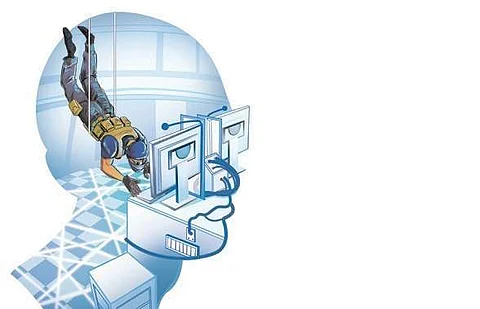

Ranjitha (name changed) was fed up with her ex-boyfriend constantly abusing her on social media. She went to the city’s cyber police and lodged a complaint. However, by the time the investigation got over, her ex-boyfriend deleted the data from social media sites and it became difficult for her to prove that the content existed. The screenshots she took of the messages were said to be tampered with in court. She lost her case. More than 50 to 100 such cases come to the city’s cyber cell. The cyber police struggle with printouts of this data and trying to prove that the screenshots were legitimate. However, a young law student from Kochi has come to the rescue of the Karnataka Cyber Crime Police.
He developed a web archiving tool to capture and preserve evidence from cyberspace, which could be produced in court and be accepted as evidence. An MoU was recently signed with the Bengaluru City Cyber Police on Friday in this regard. Speaking to The New Indian Express, Nitin Sudhakar, a third year law student from National University of Advanced Legal Studies in Kochi said, “I am extremely happy that my application can help thousands who are struggling to provide evidence,” he said.
This tool, called Expert Evidence, can be used by law enforcement agencies for investigating and producing evidence. This will help to prove the evidence produced in court. He said the tool would be made into a web extension so it can be freely accessible. According to him, cyber law in India provides for due diligence on social media. Content on the internet, once modified or removed, cannot be traced.
The conventional methods cannot be considered as evidence as they fail to comply with the standards and could easily be tampered with.
Cyber Crime Police Inspector M Chandrappa said screenshots often get rejected in court as they lack authenticity.“This tool works as a web extension. Using this tool, webpages can be extracted in readable formats, thus creating a mirror image of electronic media, where it was originally stored along with meta data, in compliance with the standards under section 65(B) of the Indian Evidence Act to be produced in court,” he said. The city’s cyber police, in the MoU signed, explained that the police will use this tool and extend their full support to develop this tool.“The tool has been provided to the city police for three months, free of cost. We will test it, after which we will buy the licence. In this tool, security measures like hashing, encryption and digital signatures, are used to make sure no one can tamper with the content. This will help to verify the originality of the content later,” said Chandrappa.
When asked about how he got the idea, 20-year-old Nitin said during his internship with a cyber cell in Thiruvananthapuram on cyber forensic law, he found that it was difficult to retrieve evidence from cyberspace. So he and his techie friend, Sudhanshu Prakash, Principal Munsiff of Kerala Judicial Service Dr John Varghese and his mentor Nikhil Narendran came up with the idea of this tool. “This tool is now being taken to all cyber police stations across the country. We have been asked to demonstrate the tool to the Kochi Cyber Police. We will take it to other states too,” he said. The website can be accessed soon at www.expertevidence.org.
